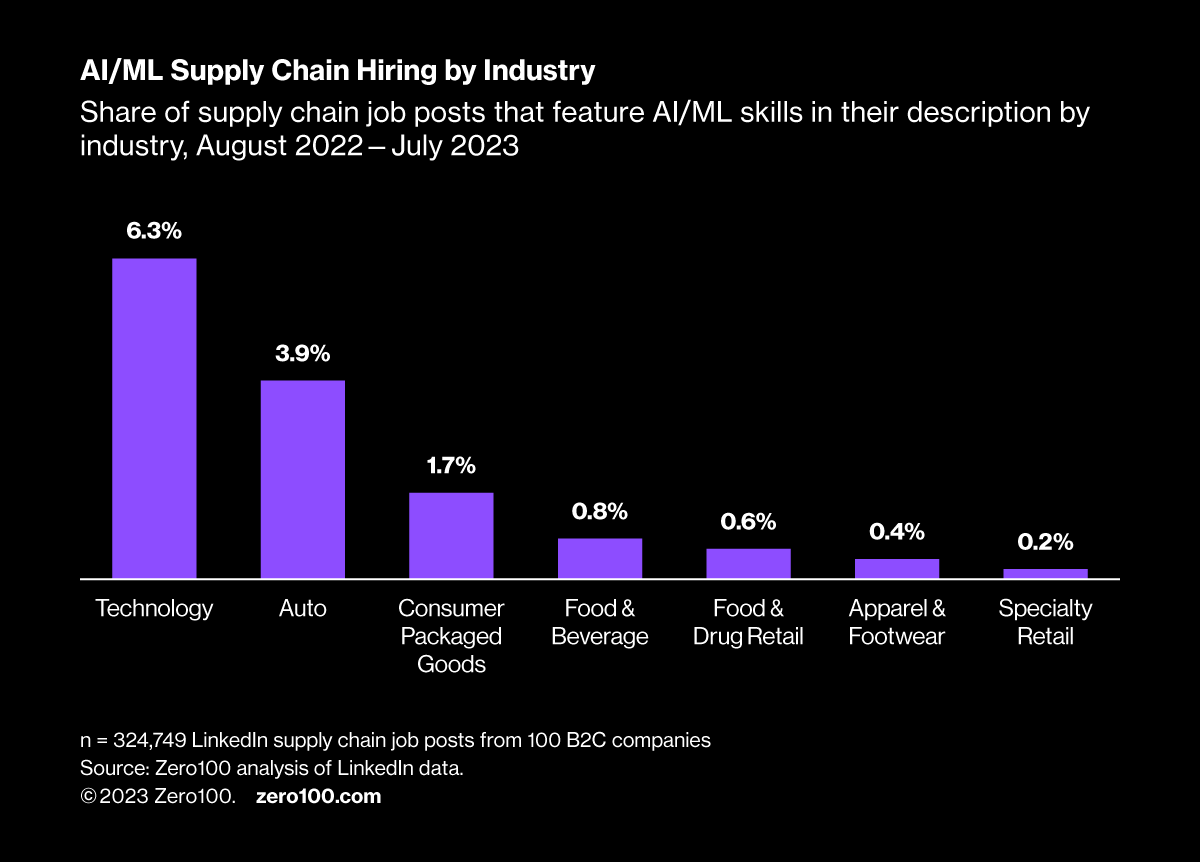
Key Takeaways
-
1
Only 1.2% of supply chain job posts on LinkedIn (looking at the 100 largest B2C companies) list artificial intelligence and/or machine learning (AI/ML) skills as a requirement for prospective employees. This is behind other business functions (marketing, sales, etc), where the share is 3.7% for all jobs.
-
2
Technology companies promote AI/ML hiring more than other sectors, with Microsoft at the top. There are few leaders outside the tech, auto, and consumer packaged goods (CPG) industries when it comes to hiring for AI/ML – Nike and General Mills outperform industry peers.
To better define the supply chain jobs of the future, we have created a new series of insights looking at digital skills. We begin by focusing on AI/ML. Recruiting for AI/ML skills has increased in 2023, partly influenced by the launch of ChatGPT and Bard (hiring for this specific digital capability was two times higher in March 2023 as compared to the end of 2022), but also given its strategic importance in supply chain operations. We now see AI implementations across all supply chain functions, from demand sensing to the development of new products and materials.
Despite the growing proliferation of artificial intelligence, only 3.7% of all job posts across the 100 largest B2C companies mention AI/ML skills. This drops to 1.2% for supply chain-specific job posts.
The leading industry is technology. Yet even here, only 6.3% of supply chain job posts mention AI/ML skills. Microsoft has the largest number of these mentions (one in five job posts). Auto and CPG are the second and third industries most inclined to hire for AI/ML proficiency, with 3.9% and 1.7% of job posts in these fields mentioning the terms, respectively. Auto and technology have a higher share of these skills as they are more likely to incorporate AI into their products. While this is valuable and innovation can potentially be repurposed across the supply chain, AI in process is where we see the most upside.

Outside these sectors, artificial intelligence and machine learning aren’t commonplace in the world of hiring. Two winners are Nike and General Mills. Over 5% of Nike supply chain jobs mention AI/ML (vs the industry average of 0.4%). At Nike, AI and ML are used to predict product demand, increase order capacity, and forward-position popular products, reducing lead times and improving service quality. General Mills is more modest with four times the food and beverage industry average – 3.2% of their job posts mention AI/ML. They use AI to improve the consistency and quality of products by analyzing ingredient data and production processes, which has resulted in improved customer satisfaction and a considerable reduction in product defects.
Supply chain organizations behind on AI/ML risk losing out to early movers in terms of talent. So, is our recommendation to add “artificial intelligence” or “machine learning” to all your supply chain job posts? Absolutely not. Incorporation of these technologies and skill sets needs to follow a deliberate roadmap that aligns to a prioritized AI investment strategy. This will signify your proficiency in AI/ML to prospective candidates, rather than just dropping in key terms.
To take your first steps, identify the potential AI/ML opportunities across supply chain functions, evaluate technological maturity within those functions, and create a matrix of the expected upside of AI/ML technology. This exercise should allow for even the most digitally mature supply chain organizations to ensure that talent and technology investments are headed to the optimal segments of your supply chain organization. If you would like help with this evaluation, we have launched a new AI blueprint tool for members. Please reach out to hello@zero100.com for more information.
Methodology
Zero100’s proprietary data and analytics are a combined effort between our data scientists and research analysts. We provide data-first insights matched with our own research-backed points of view and bring this analysis to life via real-world case examples being led by supply chain practitioners today.
For this study, we looked at 2.4 million LinkedIn job posts from 100 B2C companies. Our analysis categorizes listings based on mentions of specific digital skills within job titles and descriptions.
